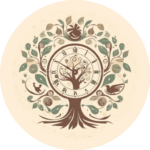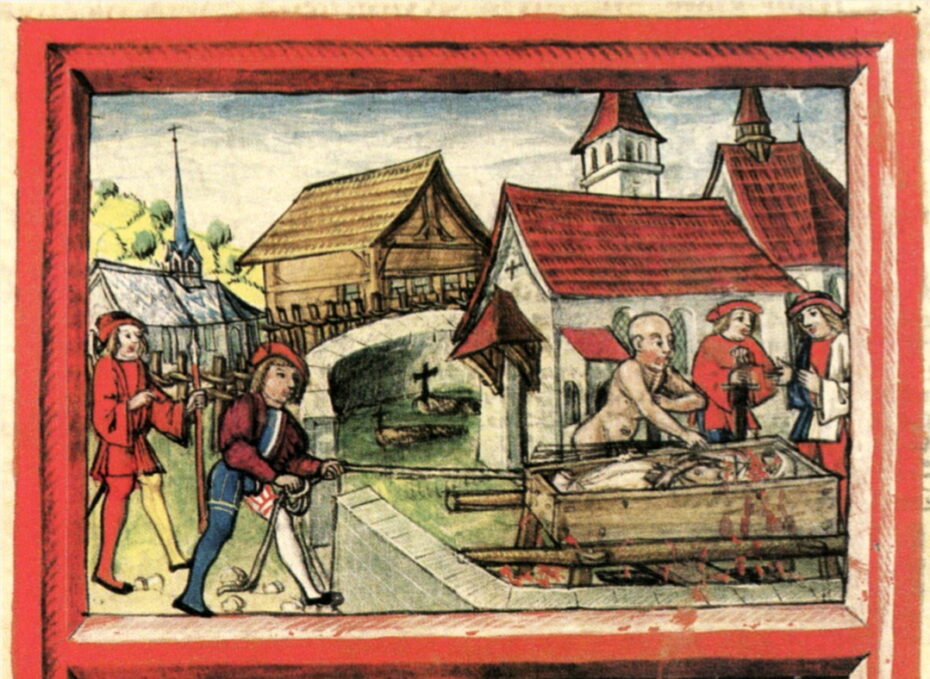In 1503, in the quiet Swiss village of Ettiswil, a woman’s corpse was laid out in the churchyard. Her name was Margaretha, and she had died suddenly; too suddenly, some whispered. Her husband, Hans Spiess, had fled the town, but he was eventually tracked down and brought back to face justice. Justice, however, didn’t mean what we might expect. Spiess …
The Censored Witches’ Flying Potion (That Promised a “Lover”)
“Rub this on your skin, get a lover.” That’s not clickbait. It’s a sixteenth-century recipe, written in all seriousness by the Italian natural philosopher Giambattista Della Porta. He recorded the formula for an ointment, said to be used by witches. The claim was that it could induce an extraordinary phenomenon: it would make the witch believe she was flying and …
Fake Virginity: The Painful Renaissance ‘Cures’ They Sold Women
CW: “Historical discussion of sexual coercion, blood & bodily harm” In Renaissance Europe, failing to bleed on your wedding night could cost a woman her dowry, her marriage – even her safety. So, of course, someone offered a solution. A 17th-century English translation of an Italian book called Magia Naturalis puts it like this: In case that wasn’t clear: the …
Before TikTok: History’s ORIGINAL Influencers
Scrolling through TikTok, Instagram, YouTube… it feels like influencers are everywhere, a thoroughly modern invention, right? But what if I told you the original influencers weren’t crafting viral videos, but commanding royal courts, dazzling high society, and shaping empires centuries ago? And the recent Met Gala? It gave us a perfect glimpse into one fascinating branch of this long history …
How Water Cures Revolutionised Medicine in the 16th Century
This was written by one of my favourite historical characters, the ever-charming surgeon often accused of being a charlatan, Leonardo Fioravanti. But hold on, because here’s another juicy 16th-century quote: Hmmm… Intriguing, right? This was actually a popular proverb that writer Michel de Montaigne heard from locals while travelling through Italy. So, what exactly was going on in these baths? …
Hypocras: The Medieval Wine Doctors Prescribed as Medicine
What if I told you one of the most popular medicines in medieval Europe was also the trendiest party drink? Hypocras (or ‘hypocras’ if you stick to the French pronunciation) was a spiced and sweetened wine so prestigious that kings gifted it to each other; it was believed to be so medically effective that doctors prescribed it, and so delicious …
How Urine Revealed Fertility in Renaissance Medicine
If a couple can’t have children and you want to know whose ‘fault’ it is, what do you do? Well, if we’re talking about Renaissance Italy, you might give this experiment a try. This recipe is from a 1529 book called Dificio di ricette, or ‘House of Recipes’ and I came across it recently when I was preparing a talk. …
Birth Trays in Renaissance Italy and Motherhood
What if a seemingly ordinary wooden tray could tell the story of a society’s rebirth after one of the deadliest epidemics in history? “In the year of our Lord 1348, there happened at Florence, the finest city in all Italy, a most terrible plague…” So starts Boccaccio’s Decameron, one of the most celebrated texts in medieval literature. The Decameron tells us much about the …
What were the “Non-Naturals”?
When I was growing up, my grandmother told me to avoid cold showers if I was having my period. I was also not supposed to leave the house with my hair wet unless it was summer. When we travelled to the mountains, my other grandmother would ‘fill her lungs with forest air’. She claimed to feel instantly healthier. I’m sure …
Alchemy in the Renaissance: The Mysterious Isabella Cortese
How do you become an alchemist? This is what a 16th-century book suggests: This advice is said to come from a woman; it’s from The Secrets of the Lady Isabella Cortese, published in Venice in 1561. But what does this book, and the mysterious writer to whom it is attributed, tell us about women, science, alchemy, authorship, authority and expertise …
- Page 1 of 2
- 1
- 2











